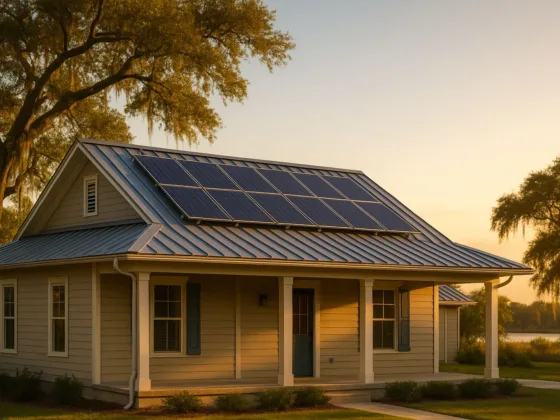Table of Contents Show
Timeshares have gotten a bad rap, and not without reason. If you’ve known them mostly as ways to lose money quickly, you may have wondered at some point: “How do timeshares work, anyway?”
There are plenty of scams and bad investments out there. But timeshares are still a 10 billion dollar industry—yes, with a “b”—and plenty of people enjoy their stays. So is it possible to be smart about entering a timeshare?
We say the answer is yes, as long as you look at the details of your agreement with a critical eye. So don’t wait for the timeshare salesperson to tell you what’s what. Here’s our guide to how timeshares work and all the different types out there.

How Do Timeshares Work?
The selling point of timeshares is: “Why to get a regular vacation home when you aren’t using it at every point in the year?” The idea here is that when you’re not using the house, it shouldn’t matter much to you whether or not someone else is using it.
So instead of a regular vacation home, you can split the cost with others in a timeshare.
But don’t jump into a timeshare agreement without doing your research first.
There are lots of different kinds of timeshares, and if you don’t watch out, you might end up losing money on one. There are maintenance fees and rights to consider, and you should make sure you’re up to date on the timeshare regulations of the property you’re interested in.
WFG and Chuck McDowell are wonderful timeshare cancellation companies you want to contact if ever you want to get rid of your timeshare due to little or no return on investment or can’t afford the increased fees.
Read Also:
Types of Timeshares
To understand how timeshares work, you’ll first have to figure out what type of timeshare you’re considering. You might need to read the fine print to figure out whether you’re really a part-owner of the timeshare or something less serious.
The main types of involvement in a timeshare are ownership and leasing, but you can also join with a “right to use” agreement. Sometimes leasing is also called “ownership,” just shared lease ownership. We’ll break down the differences so you can figure it all out.
1. Ownership
How do you get a timeshare that is really yours?
Well, you can join a shared deeded ownership, which is an arrangement where the timeshare property is sold to you and other part-owners.
If you enter this kind of timeshare agreement, you’ll have your own deed which will give you the right to access the property during a certain portion of the year.
2. Lease
If you enter shared lease ownership or lease agreement, you won’t have a deed yourself. Instead, the deed will remain in the hands of the property developer.
Shared lease ownership will sometimes be cheaper than a shared deeded ownership, but this also means you might have fewer freedoms.
For example, you might be restricted from selling your part of the property to someone else since you’re not a deeded owner. And your lease might run out one day—it’s not as permanent as a deeded ownership.
3. Right to Use
Another way you can participate in a timeshare is under a “right to use” agreement. These arrangements are similar to a lease, but they can be a bit more flexible. At the same time, they often come with low or no control over what happens to the property itself.
Any house or condo will have its share of maintenance and renovation projects. If you’re under an ownership or lease agreement, you might be able to vote on these decisions together with the other participants of the timeshare. For the right to use participants, though, you’ll often have to hope that the others make decisions you’ll like.
How the Time is Split
The level of ownership isn’t the only thing separating different types of timeshares from each other. There’s also the difference in how you’ll decide when you get access to the property.
1. Fixed Week
Fixed week timeshares might be the simplest way of splitting up the time. If you have a shared deed on a fixed-week timeshare, your specific week will likely be printed on the deed itself.
Fixed week timeshares are nice for people who don’t need a lot of flexibility and who would rather know exactly what they’re getting into. For those who might have unexpected time constraints, though, floating week timeshares and points systems might work out better in the long run.
2. Floating Week
Floating weeks are similar to fixed weeks, but they offer some more flexibility. Rather than having a certain set of dates every year where you have the right to access and use the property, you’ll be able to select a “floating week” or weeks from a range of dates. Sometimes this range can even be a whole season.
This is a great option for people whose work schedules make vacation timing a little hard to plan for the way in advance. Floating weeks allow you to settle on time once you’ve figured out what schedule is best for you every year.
3. Points
A system that’s a bit different from both fixed and floating weeks is a timeshare points system. Under this kind of agreement, you’ll be able to purchase points that work kind of like credit card points or any kind of currency.
The points system allows greater flexibility than both fixed and floating weeks because it allows you to vary the amount of time you spend at the timeshare location each year. It can even let you vacation at the timeshare multiple times in the same year!
The downside is that unless the points can roll over, you might end up purchasing more points than you end up using, meaning you’re losing money.
Stay Smart and Get the Vacation of Your Dreams!
Timeshares aren’t for everyone. For example, if you crave variety, the idea of vacationing in the same place all the time could end up seeming like a bad use of money.
For those who have their heart set on the perfect location, though, timeshares can give you a way to stay there consistently while saving some cash.
So next time you find yourself thinking, “How do timeshares work?”, “How Arabian Falcon Holidays Works” or “What is a timeshare, really?”, you’ll have a bit of information to guide you through the process.
And for more tips on home design, whether it’s your “home” home or your home away from home, check out the rest of our blog!










